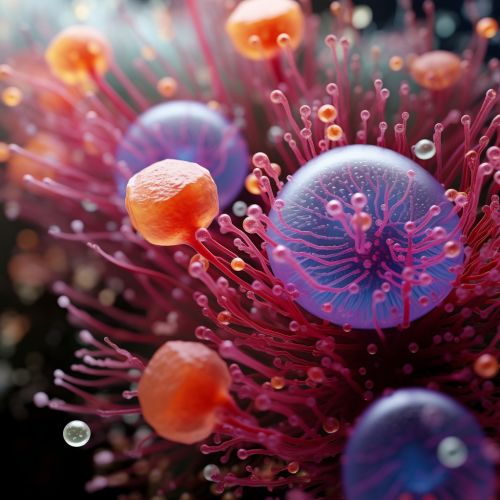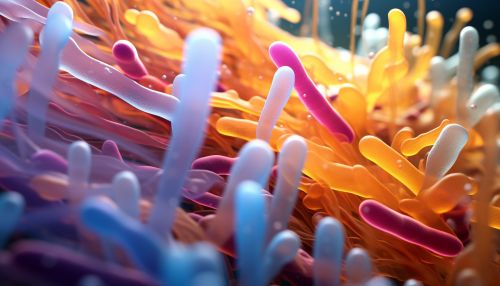Bacteroidetes
Overview
Bacteroidetes is a phylum of gram-negative, rod-shaped bacteria. They are among the most abundant microorganisms in the human gut, playing a crucial role in the degradation of complex molecules such as polysaccharides. They are also found in a variety of environments including soil, sediments, and marine environments.


Classification
Bacteroidetes is one of the major lineages of bacteria and includes three large classes of bacteria: Bacteroidia, Flavobacteriia, and Sphingobacteriia. Each class is further divided into orders, families, genera, and species. The classification of Bacteroidetes has undergone significant changes over time, with new genera and species continually being identified and classified.
Physiology and Structure
Bacteroidetes are typically rod-shaped and gram-negative, meaning they do not retain the crystal violet stain used in the Gram staining method. They have a unique outer membrane composed of lipopolysaccharides, which contribute to their resistance to many antibiotics. Some species are capable of forming spores, although this is not a common feature in this phylum.
Metabolism
Bacteroidetes are primarily anaerobic, although some species are aerotolerant. They are known for their ability to degrade complex organic compounds, particularly polysaccharides. This metabolic versatility allows them to inhabit diverse environments and play important roles in nutrient cycling. In the human gut, they contribute to the breakdown of dietary fiber, producing short-chain fatty acids that serve as an energy source for the host.
Ecological Roles
Bacteroidetes are found in a wide range of environments, from the human gut to soil and marine habitats. In the gut, they form a significant part of the microbiota and contribute to health and disease. In soil, they participate in the decomposition of organic matter, contributing to nutrient cycling. In marine environments, they are involved in the degradation of algal polysaccharides, playing a crucial role in the marine carbon cycle.
Human Health
In the human gut, Bacteroidetes contribute to the maintenance of health by breaking down complex dietary fibers and producing short-chain fatty acids. However, they have also been associated with various diseases, including inflammatory bowel disease, obesity, and metabolic syndrome. The role of Bacteroidetes in human health and disease is a topic of ongoing research.
